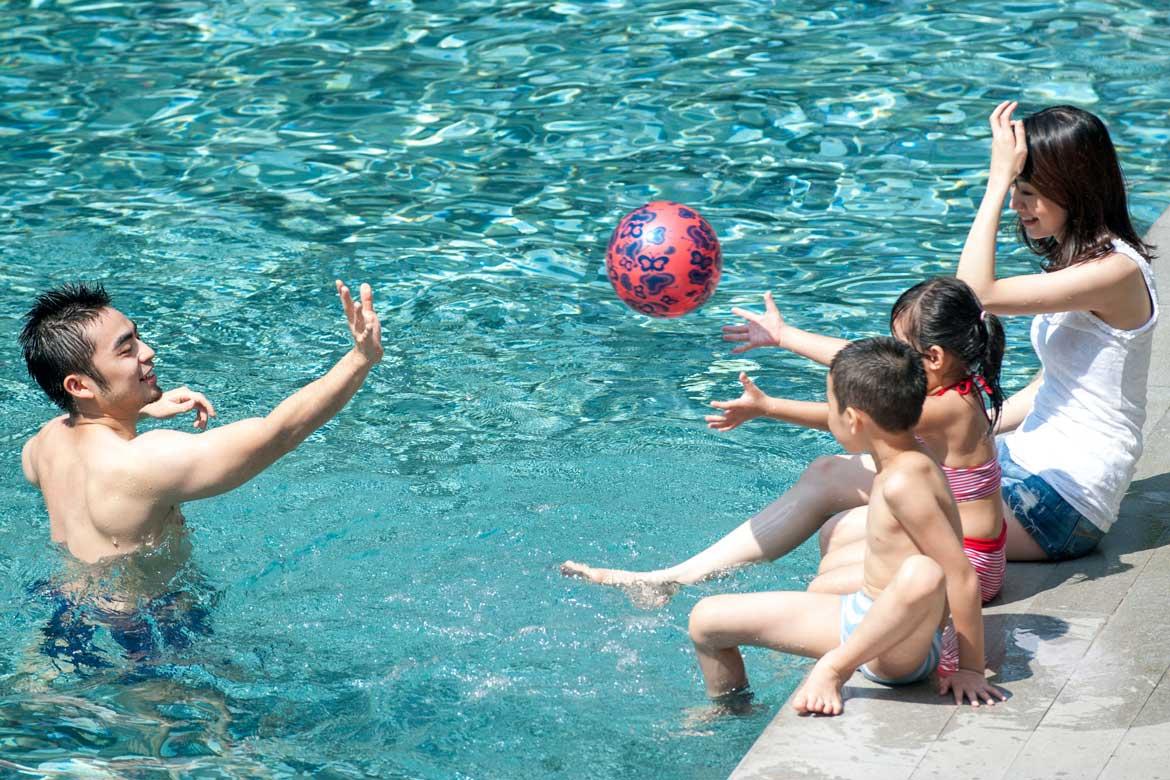-
-
Featured Care Areas

Attention Deficit Hyperactivity Disorder (ADHD)
Frequently asked questions
A: If you notice your child displaying behaviour related to the following, consider consulting a paediatrician:
- Overactivity. Constant moving, fidgeting or tapping, especially when it's not appropriate.
- Impulsivity. Reckless behaviour, such as hitting another child during an argument, engaging in high-risk stunts at home and losing control of emotions easily.
- Inattention. Difficulty staying focused, wandering off tasks and forgetting instructions easily.
A: Children with ADHD need structured routines and clear instructions on acceptable behaviour.
Nurturing a positive relationship can also help to manage disruptive behaviour significantly. Psychologists call this approach "scaffolding". It involves role-modelling and positive reinforcement from parents to teach children with ADHD appropriate behaviours.
Discipline methods that involve yelling or punishments are unlikely to work as effectively on children with ADHD. They will simply learn that being yelled at or being punished is the norm, without working on changing their overactive or impulsive behaviours.
A: ADHD can be categorised as a neuro-developmental disorder or mental illness. It is not a learning disability as it does not affect the patient's ability to read, write or learn mathematics.
However, some symptoms of ADHD (e.g. difficulties in concentrating or restlessness) can lead to challenges in learning and affect school performance in some children.
A: Yes, ADHD tends to run in families. The genes that you inherit from your parents can be a significant factor in developing the condition.
A: There is no specific test for ADHD. Making a diagnosis will likely involve:
- Medical examination, to rule out other possible causes of the symptoms
- Establishing if there is a family history of ADHD or other mental health disorders
- Discussions on the following:
- When the symptoms started
- Where the symptoms occurred
- How the symptoms affect your child's and your family's day-to-day life
- If there have been significant events in your family, such as death or divorce
Health professionals may also administer specific screening questionnaires to aid in diagnosis.
A: Studies have found that children with ADHD may have relatively delayed motor development, especially in motor coordination or more complex motor tasks.
A: Although ADHD begins in childhood, its symptoms can continue into adolescence and through adulthood.
However, ADHD symptoms may change or diminish as the person grows older. It is also likely that adults with ADHD learn what behaviours are appropriate in different environments and adapt their outward behaviours accordingly.
A: To cope with ADHD naturally without relying on medication, you can consider the following lifestyle changes:
Nutrition
In general, you should avoid:
- Caffeine and sugar, as these may magnify ADHD symptoms.
- Irregular meals and food rich in simple carbohydrates, as these may affect your blood sugar levels and lead to irritability or attention issues.
- Processed food, as they tend to contain the following additives as flavour enhancers:
- Sodium
- Artificial sweeteners
- Monosodium glutamate (MSG)
- Hydrolysed vegetable protein (HVP)
- Yeast extract
In contrast, the following vitamins and minerals are helpful for people with ADHD:
- Vitamin B6. This is essential in the production of neurotransmitters such as norepinephrine, serotonin, and dopamine. A deficiency in Vitamin B6 may cause poor memory, trouble concentrating and increased activity.
- Magnesium. A deficiency in magnesium can result in increased instances of aggression, fatigue, lack of concentration and irritability.
- Iron. This is essential for the production of dopamine. A deficiency in iron has been associated with ADHD symptoms. However, it is not advisable to take an iron supplement without a doctor's advice.
- Zinc. This mineral regulates dopamine. A deficiency in zinc may lead to a poor attention span.
- Vitamin C. This is essential for the brain to function well and produce neurotransmitters.
- Omega-3. Studies show that people with ADHD have lower levels of omega-3. Therefore, taking omega-3 supplements may help improve attention span and memory.
Sleep
Getting enough rest every night can help to improve your ability to focus and concentrate. Although ADHD symptoms can undermine good sleep habits and make sleeping hard, you should try to make sleeping a priority and change your habits around sleep.
Exercise
Exercise has been found to improve ADHD symptoms and executive functions. As an adult, any type of exercise that you enjoy doing regularly will suffice. Children with ADHD may benefit from energetic play such as martial arts, organised sports, jumping on a trampoline or cycling.
However, if your child continues to have severe symptoms which affect their daily functioning at home or at school, there are medications to treat ADHD effectively. Speak to your doctor about this.
A: Yes, "attention deficit disorder" is an outdated term that has been replaced with "attention deficit hyperactivity disorder".
A: In a classroom setting, ADHD can cause your child to struggle with:
- Focusing
- Putting effort into school work
- Listening and paying attention
- Learning disabilities as a result of not being able to hold the attention span
In terms of their behaviour, they may be fidgety, restless and disruptive.
This coverage checker is brought to you by Health Insured, an online resource that helps you understand your health coverage in Singapore.
This page has been reviewed by our medical content reviewers.
Need help?
For enquiries, please call
+65 6575 7575
For appointment bookings, please WhatsApp
+65 8111 9777








